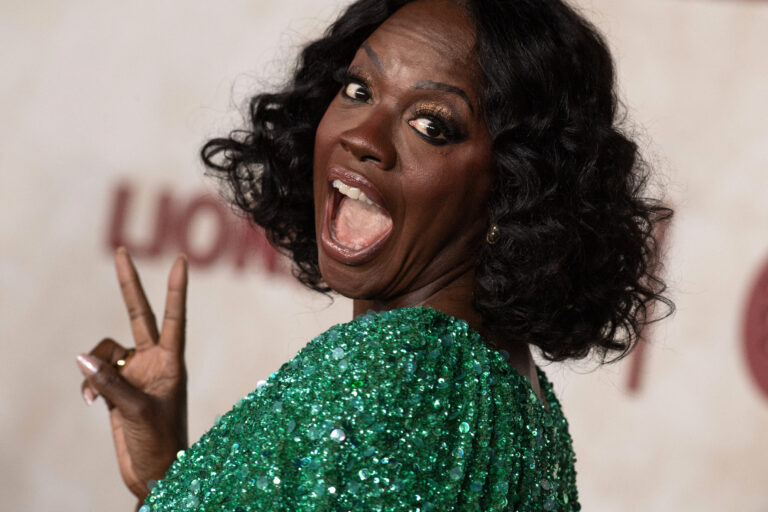
Nobody can contest the impact of The Juilliard School and the skill it succeeds in building.
Many of the world’s most famous Juilliard graduates have nabbed hundreds of Grammy, Oscar, Emmy, and Tony Awards. Beyond that, they’ve made significant contributions to theatre, music, and dance.
And with an acceptance rate of just 10%, Juilliard is one of the most selective performing arts conservatories in the world, attracting approximately 950 students from diverse backgrounds each year who hope to make the same impact.
But no school — even Juilliard — is perfect. And with the conservatory’s repertoire of producing famous Juilliard graduates as top artists in Hollywood and beyond, there’s still much to work on.

No school is perfect, so it’s even more important for the people in charge and the people with power to do what they can to fix what is wrong. Source: AFP
The not-so-glamourous parts of a glamourous school
In June 2020, Damian Woetzel, former principal dancer with the New York City Ballet and current president of The Juilliard School, released a message in solidarity with Juilliard’s Black students, faculty and staff. The school conducted a Silent Remembrance in respect to George Floyd and those who’ve lost their lives to racial violence.
But a few months later, a workshop led by musical theatre performer and NYU professor Michael McElroy brought to light the history of systemic racism and normalised microaggressions towards minority communities, common to a school that’s predominantly white in both faculty and student.
In McElroy’s workshop, participants were told to imagine themselves as slaves, using audio extractions from “Roots,” a miniseries about slavery, while jarred by the clash of metal chains, whipping bites, a slave shop auction, and a song with the repeated use of the N-word.
After Marion Grey — Juilliard’s Black Student Union president — posted an Instagram video in retaliation, Woetzel apologised.
But this isn’t the only instance where systemic racism has reared its head in Juilliard’s halls.
- Playwright Lee Edward Colston II told CBS News that while he was a student in the school, he had heard a White faculty member state the N-word as a means to provoke a reaction.
- In 2021, renowned violinist Pinchas Zuckerman remarked on harmful Asian stereotypes to students during a masterclass. He told a pair of sisters of Japanese descent that the Koreans and Japanese did not sing after mistaking their origins in the first place.
- In 2008, student Evan Todd wrote in The Juilliard Journal about how there hadn’t been any celebrations for Coming Out Month in October or an organisation sanctioned to represent the LGBTQ+ community.
Now, as internationalisation means that students from all over the world can gather under a singular roof or one classroom, how does systemic racism play out in the grand scheme of things?
Perseverance in the face of longstanding hardship
According to the Open Doors 2023 Report on International Educational Exchange, there were over one million international students in the US during the 2022/2023 academic year, an increase of nearly 4% from the previous year.
This increase brings with it the responsibility to create inclusive communities that reflect and support these students’ experiences. Without a sense of belonging, students may face academic and personal challenges that hinder their overall university experience.
Juilliard, renowned for its exceptional arts programmes and famous Juilliard graduates, has recognised this responsibility.
However, the institution has also faced scrutiny for its handling of diversity and inclusion issues.
A watershed moment arrived when the Juilliard Black Alumni Association (JBAA) issued a letter to the school, demanding tangible actions to address systemic racism within its walls.
Established in 2020 in collaboration with the Office of Alumni Relations, the JBAA aims to create a supportive, interconnected community that bridges Black students, faculty, and administration. Their initiatives encompass scholarships, mentorship, career support, and advocacy.
Another initiative is the Gay-Straight Alliance, which provides a safe space for students to discuss personal concerns regarding their sexual identity. The organisation’s activities encourage open and honest dialogue, helping to break down barriers, and encourage understanding among students of all backgrounds.
It’s not perfect, but it’s a step in the right direction.
And as more famous Juilliard graduates sign their name in the stars, more attention and responsibility is set on Juilliard’s shoulders, and with it, a better future for everyone ahead.

Viola Davis is the first African-American woman to win a lead actress Emmy for her role in the drama “How to Get Away With Murder” from ABC. Source: AFP
10 famous Juilliard graduates from minority communities
Viola Davis
Born in South Carolina and raised in a challenging environment, Davis’s journey to success highlights her resilience and talent. As a famous Juilliard graduate, she honed her craft in their drama programme. It was the foundation of her stardom with award-winning performances in “Fences,” “The Help,” and “Ma Rainey’s Black Bottom,” for which she received critical acclaim and numerous accolades.
Beyond acting, Davis advocates for diversity and representation in the arts through her production company, JuVee Productions, creating content that reflects and celebrates underrepresented communities’ experiences.

Sara Ramírez’s portrayal of Dr. Callie Torres on “Grey’s Anatomy” marked one of the earliest series of regular queer roles on primetime television. Source: AFP
Sara Elena Ramírez Vargas
Sara Ramírez, another famous Juilliard graduate and a prominent figure in the entertainment industry, has broken barriers for Latinx artists and LGBTQ+ individuals through powerful performances.
In 2006, Ramírez’s breakout role as Dr. Callie Torres on “Grey’s Anatomy” provided much-needed representation for the LGBTQ+ Latinx community. Their portrayal earned critical acclaim and a Primetime Emmy Award.
Also known for their advocacy, Ramírez champions LGBTQ+ rights, bisexual visibility, and mental health awareness, becoming a role model for marginalised communities.
Jahaan Akil Sweet
Jahaan Akil Sweet is an emerging talent in the music industry. His journey began at Juilliard, where he studied jazz and collaborated with Kehlani on her early mixtapes.
Sweet has produced several Billboard Hot 100 hits, including Taylor Swift’s “Lavender Haze,” Eminem’s “Lucky You,” and Travis Scott’s “K-pop” and “Fe!n.” His work has earned two Grammy Awards: Best Urban Contemporary Album for “Everything Is Love” and Album of the Year for “We Are.”
Nigel Campbell
Nigel Campbell, a distinguished dancer and educator, is renowned for his contributions to ballet and contemporary dance. He was enrolled in Juilliard’s Bachelor of Fine Arts programme, where he performed as a soloist with the Metropolitan Opera Ballet in productions like “Aida.”
Throughout his career, he danced with the Saarländisches Staatstheater in Germany and now teaches at his alma mater — leading the students as a famous Juilliard graduate himself. His work enriches the dance community, showing that talent and dedication can lead to global success.

Today, Michael Urie continues to break barriers as the lead in Netflix’s first original gay Christmas rom-com: “Single All the Way.” Source: AFP
Michael Lorenzo Urie
Michael Urie’s career took off shortly after graduating from Juilliard for theatre studies, with his breakout role as Marc St. James on “Ugly Betty.” He found stage success, earning accolades like the Theatre World Award and Lucille Lortel Award for “The Temperamentals” and starring in “Angels in America.”
An advocate for LGBTQ+ representation, Urie has embraced roles reflecting his identity, receiving multiple nominations and awards, including the John Houseman Prize for excellence in classical theatre at Juilliard.
Fala Chen
Before Fala Chen starred in “Shang-Chi and the Legend of the Ten Rings” as the mother of Marvel’s first Asian superhero Shang-Chi, she found stardom continents away.
Chen was eight years into her acting career in Hong Kong when she put her life on hold to pursue a Master of Fine Arts acting program at Juilliard in 2014. In Hong Kong, she could act freely and boldly without worry to Western box-office audiences, something she effortlessly proved by snagging the title of best actress in a supporting role for her portrayal of Lau Ching in “No Regrets” at the 16th Asian Television Awards.

After Andre Braugher’s passing in 2023, many of his co-stars expressed admiration for his talent, grace and kindness — his legacy lives on. Source: AFP
Andre Braugher
The late Aundre Braugher brought empathy and laughter to our screens and off it through his role as Captain Holt in “Brooklyn Nine-Nine” — the stoic yet caring captain, a telling of the years of racism and homophobia his character encountered while at work. He graduated from Juilliard in 1988 from the drama division.
He’s been open about the disparity of roles for black men and the tendency to pigeonhole actors into stereotypes when he first started. And that’s what makes his legacy everlasting as one of the most important famous Juilliard graduates — the humility and class he brought to his roles.
Robert Battle
Modern dance pioneer Alvin Ailey founded the Alvin Ailey American Dance Theatre in 1958 to bring forth African-American heritage in the art. Robert Battle carried the torch that Ailey passed on for 12 years during his term as the theatre’s artistic director, right up until his retirement. Battle adapted Ailey’s choreography to suit the times and pushed for a predominantly Black ensemble to thrive.
As a famous Juilliard graduate who earned a Bachelor in Fine Arts in 1994, Battle trained under Carolyn Adams — a former Paul Taylor dancer. He started dancing with the Parsons Dance Company right after, choreographed pieces for them from 1998 onwards, and joined Ailey in 1999.

Latimer’s relatively new to Hollywood, having graduated at the peak of the pandemic—2020, but she’s already landed roles important to the sphere of entertainment. Source: AFP
Jules Latimer
Jules Latimer had a pursuit aside from her love of acting: she wanted to connect to the queer Black people in the middle of America. Her current work reflects this — Latimer currently stars in the popular CBS show “Fire Country” as firefighter Eve Edwards, a queer Black woman.
It’s Latimer’s way of leading by example. She wants to see more people like her, out and proud of their identity, in the industry. Before “Fire Country,” she starred in “Guilty Party” alongside Kate Beckinsale. And before her on-screen debut, she acted in school and off-Broadway productions. Latimer graduated from Juilliard in 2020.

Latimer’s relatively new to Hollywood, having graduated at the peak of the pandemic—2020, but she’s already landed roles important to the sphere of entertainment. Source: AFP
Samira Wiley
Samira Wiley’s four seasons on “Orange is the New Black” as Poussey Washington, was a light in a place as dark as prison, led with utmost courage. Her characters show strength in the worst of times, stand up for what’s right, and that’s what Wiley’s all about: empowering women.
Wiley graduated in 2010 from Juilliard having trained in theatre performance. She’s proud of her roles — they represent the minorities Wiley identifies with as a Black queer woman. She’s had four Emmy nominations for her role as Moira in “The Handmaid’s Tale” and won in 2018.










